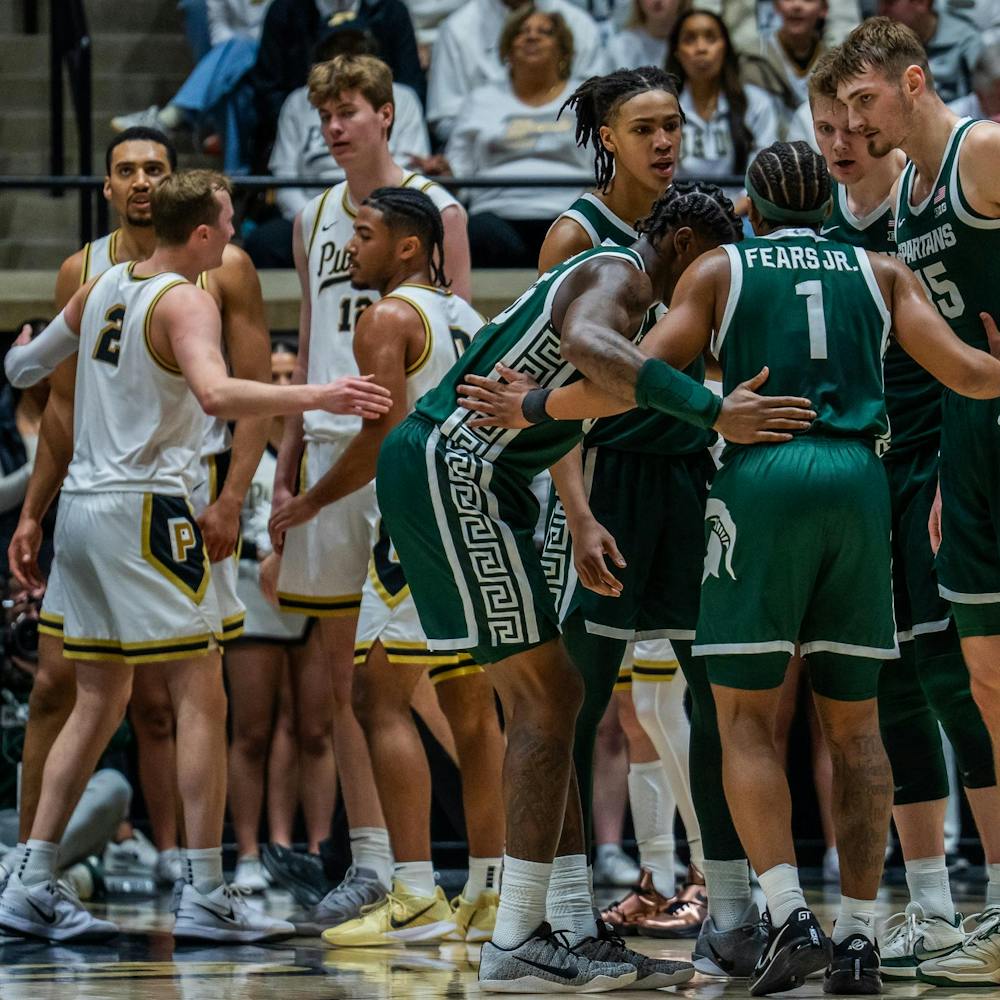She did not know her dad competed as a two-sport athlete for Michigan State in the 1960s. She did not know he was a part of the team that broke the color barrier in college football and helped lead MSU to back-to-back national titles in 1965 and 1966 and was drafted eighth overall by the Minnesota Vikings in 1967.
The moment she learned about her father’s illustrious career and the historical significance of the MSU football teams he was a part of, her life changed. She shared her learning experience in her documentary “Through the Banks of the Red Cedar”, which shows Maya Washington learning the history of her father and former head coach Duffy Daugherty’s integrated football teams of the 1960s.
She documented her learning process through interviews with her father and his teammates from Michigan State to share the historical significance of the teams and her father’s legacy with the world. The documentary highlights Maya Washington’s journey learning about her father’s past and the spark it brought to their relationship as a father and daughter.
“It required me to spend time with my dad — to ask him about his life, to spend time with his teammates and coaches, and getting to know his history and doing a lot of research and watching old films and looking at family albums,” Maya Washington said. “It has been such an incredible gift for he and I to spend time together, getting to know one another.”
But it took a while for Maya Washington to figure that out and find that connection with her father again. First, she had to get an education.
Gene Washington was tight-lipped about his past and the accomplishments that predated Maya Washington’s birth. She only knew him as Dad. There was no talk of the Game of the Century or battles with UCLA in the Rose Bowl. They focused on the life of the Washington family with a dad working in corporate America, not football.
The conversations between them varied, but Gene Washington’s own experience never came up. The emphasis always came back to Maya and her sisters to go to college and complete their education.
“I really only knew him as someone who worked in corporate America on issues of diversity, equity and inclusion,” Maya Washington said. “That he was a human resources professional working to create access and opportunity to employment and higher education. That's what I knew of my dad.”
Maya Washington continued her pursuit of her father’s dream and graduated from USC with a bachelor’s degree in Dramatic Arts. She wanted to become a storyteller and stumbled across her father’s own shortly after graduation.
It happened while attending the funeral of Spartan legend Charles "Bubba" Smith, who played with Gene Washington from 1963-67. She went with her father and began to hear a wide range of stories from her dad and his teammates about their time and legacy at MSU.
At the memorial service, she learned that Smith told former Michigan State head coach Duffy Daugherty about his crosstown rival’s star wide receiver, who happened to be Gene Washington. Daugherty offered both of them a scholarship and they came to East Lansing from the segregated towns of Beaumont and LaPorte, Texas in 1963. Other Black stars from the south like Jimmy Raye II, Clinton Jones and George Webster joined them.
The story was so moving that Maya Washington decided to put her degree to use and learn more about her father at the same time. With it being too late to thank Smith for what he did for her father, Maya Washington decided to honor his legacy and the team’s legacy by sharing its story for a larger audience.
“The more I learned about this history, the more it became clear to me that I really wanted more people to know about this specific integration story at Michigan State and Duffy Daugherty's recruitment of Black players in the south at the time,” Maya Washington said.
Maya Washington began her research into her father’s past as an athlete. Through talks with her father and his teammates, she learned about the group’s historic migration from segregated towns in the South to Michigan State to play for Daugherty, the only head coach in America at the time that would field a fully integrated football team.
“There's so much that I just really didn't know the details around that was incredibly surprising,” Maya Washington said. “And I think some of the gifts that have come out of those surprises are the blessing of having connection and relationships to my dad's teammates and their family.”
She delved into the history of the players who took the immense risk to travel across the country to play the sport they love. She learned about the group of trailblazers: Smith, Jones, Webster and Gene Washington, who were teammates on the first fully-integrated college football team and then proceeded to be four of the first eight picks of the NFL draft, a record that still has not been broken 55 years later.
Most of that learning took place through conversations with Gene Washington about his own history. The story focuses on his experience making the unprecedented journey across the country along with others and how they overcame adversity to reach the highest levels of the sport. For Maya Washington, the talks of the past painted her father in a new light and made her appreciate their relationship in a new way.
Support student media!
Please consider donating to The State News and help fund the future of journalism.
“I think it gave me even more context for his personality, for his love of sports, his passion and determination that my sisters and I would get our college education and also go on and get graduate degrees,” Maya Washington said. “It really helps me to fill in some blanks about him and his life and in the way that he views the world.”
The overwhelming support for the film, which premiered in 2018, came from everywhere once it was released. College sports historians, MSU diehard fans and people that simply enjoyed the story of a father and daughter rekindling their relationship all reached out to Maya Washington for sharing her story.
“Whether you are a diehard football fan or not, I think the way that we've approached this story, people have really responded to the father-daughter story,” Maya Washington said. “People have really responded to the historical components of learning more about history and learning more about football from a different angle.”
The feedback was so positive that PBS picked up the film to start regularly airing on its programs beginning in February. Maya Washington decided to adapt the film into a book to dive deeper into the stories shared with her in the filmmaking process. The book, “Through the Banks of the Red Cedar,” released in January, dives deeper into the stories of Gene Washington and his teammates’ legacy.
The only thing left on the agenda for Maya Washington now is for Michigan State University to permanently recognize the MSU football teams of the 1960s and for Spartan fans to do their homework on them. Through sharing the story, it’s become apparent to Maya Washington that many Michigan State fans, just like herself growing up, are unaware of her father’s legacy.
“I think it's really important that it's the team being recognized, and not just individual players because collectively they accomplished so much,” Washington said. “I think it's a disservice, especially if you're a part of the Michigan State University community, to not talk about and learn from the ways that the university really contributed to access to inclusion, and to opportunity in the 1960s.”
Michigan State Athletic Director Alan Haller announced on Jan. 18 on The Drive With Jack radio show that MSU plans to build a statue of Daugherty and the five Black starters on the two national championship teams when the football complex is renovated, which has no scheduled start date.
“My dad will tell you anything he was able to accomplish as a football player was because he had extraordinary individuals around him, that he was participating as a member of a team,” Washington said. “So I think it's really exciting that Michigan State University is really thinking about ‘How do we honor these teams?’.”
Discussion
Share and discuss “How Maya Washington learned about her father's historic legacy in making 'Through the Banks of the Red Cedar'” on social media.







